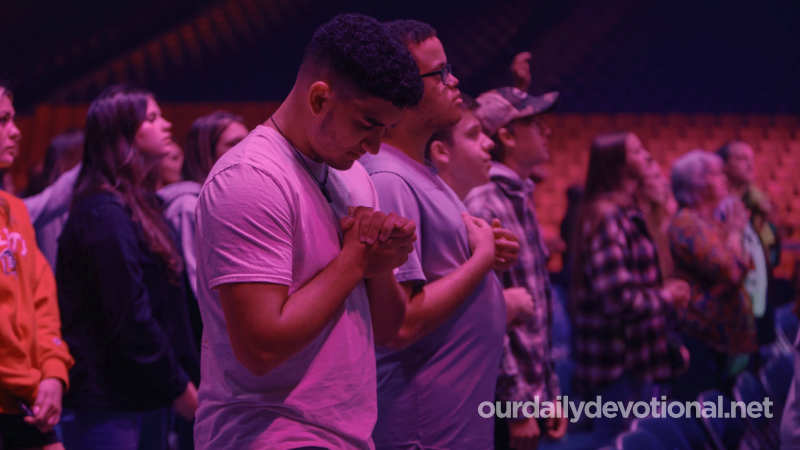The unequal distribution of material goods does not correspond to the ideal desired by God.
By granting the land of Canaan to his people (Ex. 6:4, 8), he ensures in principle an equitable distribution of the lands. The Law of Moses allowed the Israelites to sell their property, but with respect to land, it required that at the end of each 50-year period, each family could freely return to the property they had inherited.
Thus, the land could not be sold, but only its usufruct until the end of the jubilee period (see JUBILEE; cf. Lev. 23:13, 23). This ordinance, which was intended to prevent land grabbing, did not entirely eliminate poverty, due either to the fault of the individual or his predecessors, or to circumstances for which only God knows the reason.
In the Israelite theocracy, destitution resulting from laziness or crime is theoretically excluded; The poor are considered as unfortunate people suffering trials, but loved by God. All the destitute, especially widows, orphans, and strangers, are the object of the special attention of the Lord and of pious Israelites, according to the precise instructions of the Law.
Anyone who was hungry had the right to satisfy his hunger with grapes or ears gathered on the property of others, but he was prohibited from taking them (Deut. 23:24, 25). The poor are authorized to glean behind the reapers, to gather the ears left on the edges of the field and in the corners, which the owner had to leave for them (Lev. 19:9).
Likewise with the gathering of the vine (Lev. 19:11; cf. 23:22; Deut. 24:19-21). The land was not to be cultivated or mowed during the seventh year or the jubilee year. Whatever he produced during that rest belonged by right to the community, which was fed free of charge (Lev. 25:4-7, 11, 12).
The destitute Israelite could sell his labor to an employer for a certain number of years, but in the year of Jubilee he regained his freedom (Lev. 25:38-42). The loan requested by a poor woman had to be granted, even as the sabbatical year that allowed the debtor to cancel her debt approached (Deut. 15: 7-10).
When a census was taken, each Israelite of twenty years or older, whether male rich or poor, had to pay a ransom on his person of half a shekel of silver intended, at first for the Tabernacle (Ex. 30:1116) and later for its maintenance. of the Temple (2 Kings 12:4-5).
As for the offerings presented in the sanctuary by the poor, they could sometimes be inferior to those of the rich (Lev. 12:8; 14:21; 27:8). The Law exhorts the Israelites to invite the less privileged to their tables during religious solemnities and occasions of rejoicing (Deut. 16:11, 14).
The Bible shows numerous gestures of compassion for the poor (Jb. 31:16-22). The Law prohibits the oppression of the weak (Ex. 22:21-27), however, in the event that he is to be judged, it is urged that his condition as poor be ignored, and the accusation must be objectively examined in against him.
The demand for justice must prevail (Ex. 23:3; Lev. 19:15) Periods of religious decline frequently coincided with the violation of the charitable precepts of the Law, which constituted the occasion for the proclamations of the prophets against of harshness and injustice (Is. 1:23; 10:2; Ez. 22:7, 29; Mal. 3:5).
Those who hold to the letter of the Law, but neglect the spirit of it, give alms out of pride, to be seen by men (Mt. 6:1-2). There are numerous promises of grace and protection to the pious but poor Israelites (1 Sam. 2:8; Jb. 5:15; 34:28; 36:15; Ps. 9:18; 10:14; 12:5; 34:6; 35:10).
He who has mercy on the needy is the object of divine blessings (Ps. 41:1; Pr. 14:21, 31; 29:7). During his ministry, the Lord Jesus bore witness to his love for the poor (Mt. 19:21; Lk. 18:22; Jn. 13:29; etc.); It is to them, in a special way, that the Good News is addressed (Mt. 11:5; Luke 14:21-23).
The early Church considered it one of its most sacred duties to help its members without resources, and also to help, as far as possible, the poor who did not belong to the Christian community (Acts 2:45; 4 :32; 6:1-6; 11:27-30; 24:17; 1 Cor. 16:1-3; Gal. 2:10; 1 Thes. 3:6). The spirit of poverty, of humility, must characterize the rich as well as the poor (Mt. 5:3).
It is expressly exhorted not to show partiality and not to despise the poor, whom God has chosen to be rich in faith and heirs of the kingdom (cf. James 2:1-5).
Although it must be emphasized that it is not poverty that leads anyone to salvation, it is easier for a poor person to accept God's grace than for those who are clinging to abundant riches (Lk. 18:24-27) .
The Christian must always be aware that any good he has in his property does not belong to him in an absolute way, but has been given to him for his faithful administration in accordance with the will of God (cf. Mt. 25:1528; Luke 19:13-25; 1 Cor. 4:7 and Eph. 4:28).
Meaning of POOR
The unequal distribution of material goods does not correspond to the ideal desired by God.







